Welcome to Ecommerce Camp, where today’s topic is Planning Your Exit: Sell Your Ecommerce Business.
For the beginning, a few words about myself:
Speaker Introduction
My name is David Linehan. I joined the family business in 2007, specializing in repairs for Industrial Automation Parts, which, as you can imagine, is among the most exciting industries in the world.
Roughly a year after starting with my dad, I delved into selling these parts online. Some of these parts were traded for a bowl of whiskey or some free space.
I encountered a US company doing similar work. They offered me a small amount, which led me to consider doing it ourselves.
We initially listed the parts on eBay, gaining some traction.
Eventually, we invested in developing a powerful web store. Later we transitioned to Magento.
Our business expanded, exporting to approximately 130 countries worldwide, including South America, North America, China, Africa, and many more. We established offices in Mexico and Germany to facilitate our global operations.
I sold my business in December 2022 to the same company that ironically offered me a low amount 16 years ago, which makes for quite an amusing story.
Now, I’m employed by that company and leading the European division. The company’s name is Radwell International, a leader in Industrial Automation Spares and Repairs, with around 400 employees in Europe and experiencing growth.

I used to wear my Casio quite often. It reminds me of a time when we received three different offers for the business. I recall a specific night when we had an offer of over 10 million pounds. I was sitting there wearing a Casio watch that cost six pounds from Argos, thinking, ‘I’m just going to turn this down.’ It felt a bit surreal, wearing a Casio watch and contemplating such a significant offer—looking back, it makes me chuckle.
Why start a business?
I believe before discussing why we might sell a business, it’s important to consider why people start one in the first place.
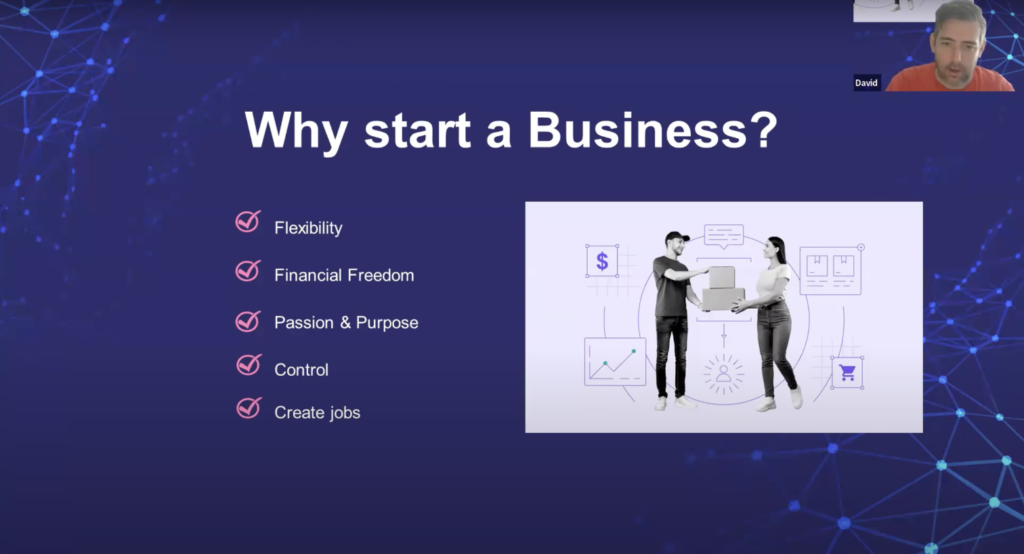
- Having the flexibility to work the hours you desire is one of the motivations, although often not the case when you’re starting a business.
- Financial freedom is a significant goal for many individuals, aiming to create the lifestyle they desire.
- Some are driven by passion and purpose, diving into a role they are passionate about, whether it’s ecommerce, bicycles, cooking, or any other interest.
- Control is another crucial element. Running a business allows you to make decisions independently and be responsible for everything.
- Creating jobs and offering employment opportunities to others is also a noble aspect, but I don’t believe many individuals initiate a business with the immediate intention of selling it, especially early on.
Personally, while I always had an inkling that I might sell the business at some point, it wasn’t something I pondered when we started, nor during the initial ten years.
So, what might prompt someone to sell their business?
Why sell Your Ecommerce business?
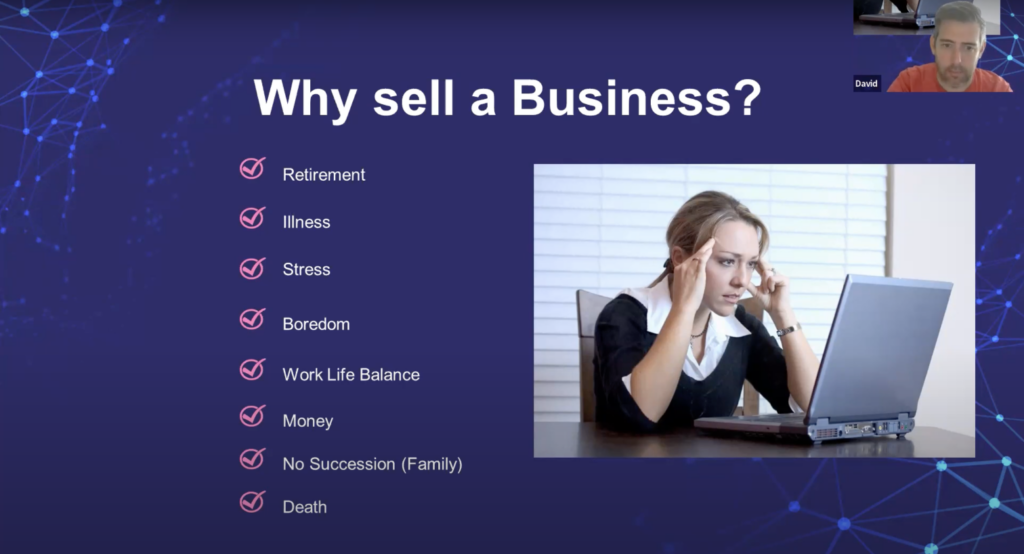
Retirement, illness, stress, boredom, issues with work-life balance, financial reasons, or lack of anticipated profits could be factors.
Additionally, succession plans might not pan out as expected, such as a family member or colleague not taking over as planned.
Unfortunately, death is also a significant reason, albeit the worst on the list.
These reasons are important to bear in mind for the next topic: timing.
Sell Your Ecommerce business: Proper Timing
- Timing is crucial when considering selling a business.
You need to ponder the duration this process might take.
When I sold my business, it was relatively swift, taking about seven to eight months from the initial approach to the sale.
However, for many, finding a buyer could take longer—up to five years or more if the right buyer doesn’t surface soon.
- Therefore, choosing the right time that suits your circumstances is essential.

- Waiting too long might not be advantageous.
I’ve been on the other side of this scenario, where a business owner was about to retire at 67, and the business’s value was significantly tied to them.
Unfortunately, this made it less attractive to potential buyers. If the business had been sold earlier and the transition worked out, it might have fetched a better price and provided a smoother handover.
- Next, consider your objectives for the sale.
– Are you aiming to sell quickly due to business struggles?
– Do you want to sell a portion to grow further?
– Maybe you seek an infusion of experience or capital?
– Or perhaps you’re solely focused on getting the highest price possible?
These objectives significantly influence the next steps.
- One thing I’d reiterate several times throughout this presentation is not to underestimate the effort or time required for a business sale. It’s likely the toughest task you’ll undertake in your lifetime for most individuals.
Preparing the business for sale
Preparing the business for sale is akin to creating an attractive profile on a dating app (not that I’ve ever done one, just to clarify).
You must make it appealing to the right person.
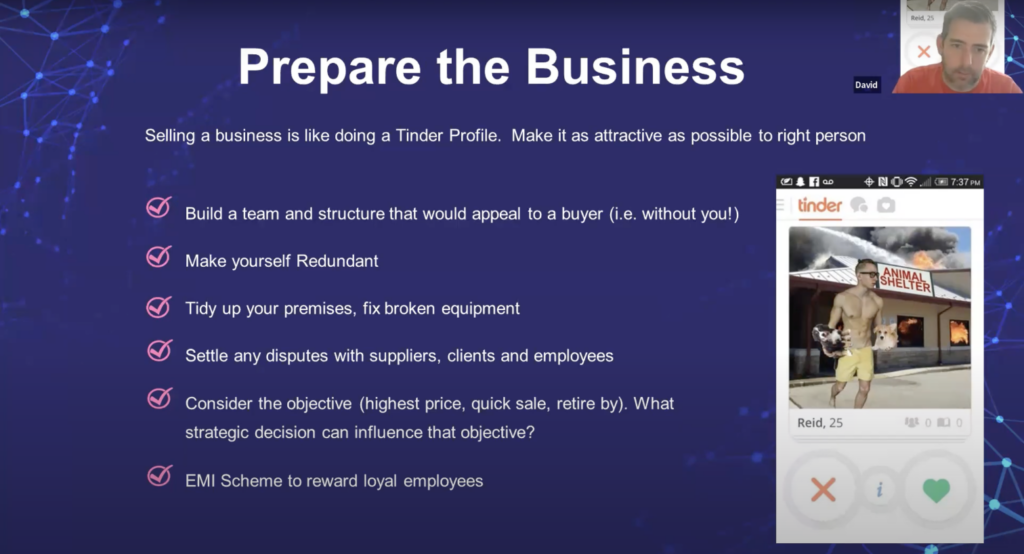
What makes a business attractive?
- A structured team and framework that appeals to potential buyers, making the business less reliant on your singular presence.
- You almost have to try and make yourself redundant and ensure that your business can run without you.
- Ensure your premises are in good shape, fix any equipment issues, maintain a well-functioning website, and resolve any disputes with suppliers, clients, or employees.
- Next, consider your objectives carefully.
If your primary aim is to secure the highest price for your business, there might be strategic decisions you can make to influence that goal.
For instance, if you’re selling tents online, you might realize that expanding into another related field could attract a larger customer base, increase traffic, and generate more revenue. - Additionally, another consideration could be your staff. If you have a large team, implementing an Employee Management Incentive (EMI) scheme could allow your employees to benefit from the sale, serving as a way to reward them.
Prepare yourself for business sale
Preparing yourself is equally important.
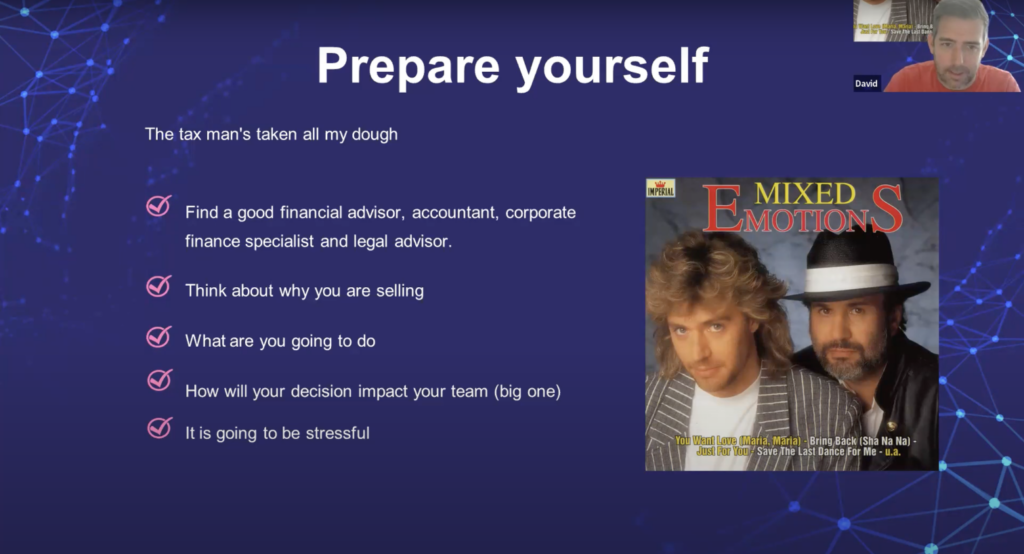
- Having a reliable team of financial advisors, accountants, corporate finance, and legal experts is crucial.
- Keep in mind why you’re selling and what this sale means to you personally.
- It’s going to be a challenging journey, so ensure you’re mentally prepared for it.
For me, planning post-sale was a big question: What was I going to do after selling?
That’s something you need to think about too.
NOTE:
This is a script of our in-depth webinar with David Lenehan, focusing on strategies to prepare for your business exit and successfully sell your ecommerce venture.
To further assist you, we’ve made accessing this valuable resource simple. You can easily view the full video recording:
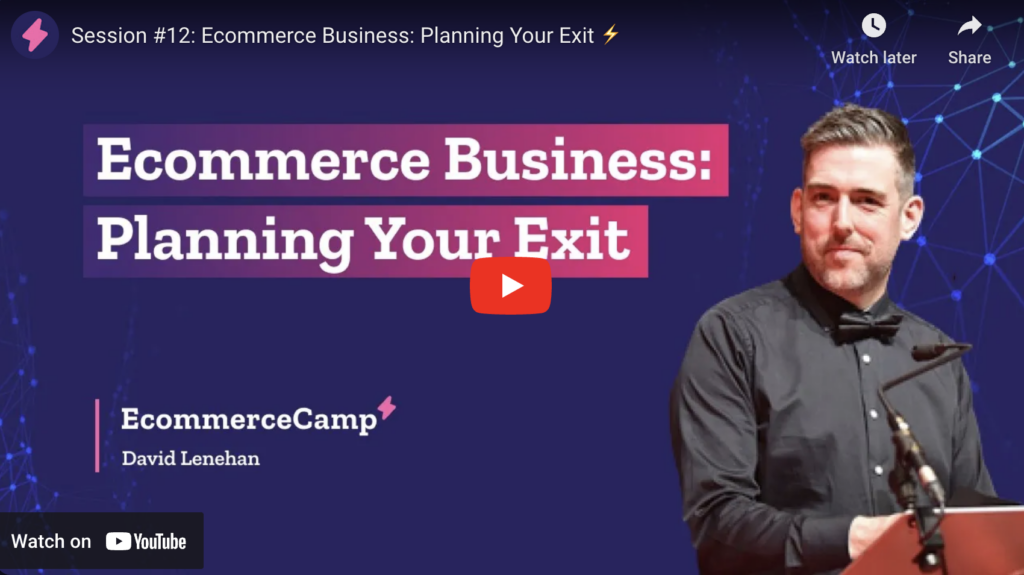
Need Specific, Targeted Advice For Your Store?
Whether you’re embarking on your first steps into the world of e-commerce or already running an established business, don’t hesitate to contact us. Our dedicated team is here to provide unwavering support and assistance throughout your entire journey.




